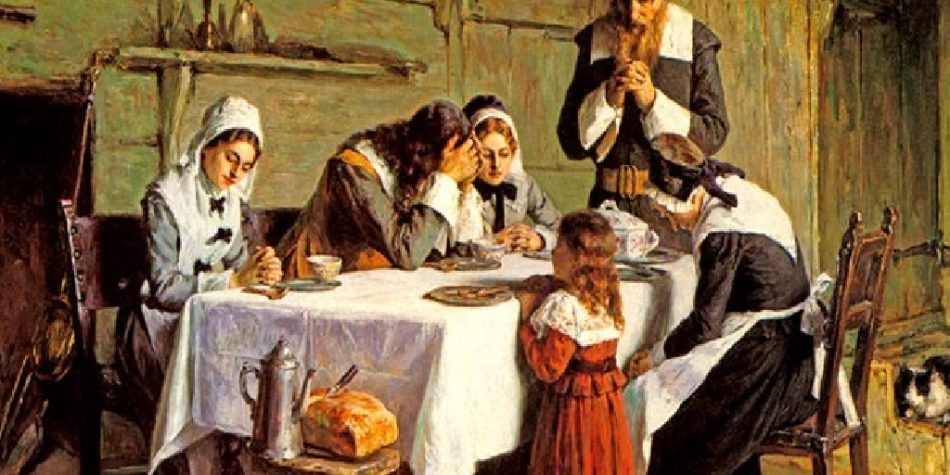Imagine yourself, several years from now, having a conversation with your five-year-old child or grandchild. They look up at you with shining eyes and ask,
“[Mom/Dad/Grandma/Grandpa], what was it like in 2020?”
Wow, what a loaded question.
What would your reaction be? How would you respond? Would you tell them about the natural disasters and the political tension? Would you joke about the toilet paper shortage and the empty shelves at the grocery store? Would you share the fears and worries you faced due to the COVID-19 pandemic?
As you rattle on about the complexities of 2020, your child/grandchild interrupts you and asks, “But wasn’t there anything good that happened during COVID?”
This question is the same one we pose to you.
COVID and Religious Practices
The COVID era brought with it a series of hurdles. From illnesses to masks, social distancing to isolation, and for all too many the loss of loved ones, the world order was affected. For many, one greatest source of shock came from the shutdowns. Schools, office buildings, extracurricular activities, high school and professional sports, Disneyland, and even many beaches closed down for several months. For many of us, however, one of the most difficult closures was the stoppage of in-person religious services.
Religious communities are a vital dimension of life for many individuals and families. Study after study has shown that community-based religious involvement can be helpful in the face of diverse challenges—with one landmark study finding that frequent attenders live an average of 7.6 years longer than those who never attend services (the figure nearly doubles to 13.7 years longer among African Americans). For many religious families, COVID-19 threw a wrench in their way of life after the shutdown of their religious gatherings in churches, mosques, synagogues, and temples. Individuals and families worked creatively to find new and adaptive religious practices and ways to worship.
In a recently published scholarly article published in Marriage and Family Review, BYU researchers David Dollahite, Spencer James, and Loren Marks and Utah State doctoral student Heather Kelley conducted a study as part of the ongoing American Families of Faith project. This recent study focused on the role that home-centered religious practices played on religious families during the COVID pandemic. Dollahite and colleagues examined diverse religious participants and how they implemented various religious practices. Did the temporary removal of in-person worship help some families through a global pandemic? Or did it hurt them?
Though religious involvement changed during the pandemic because public religious gatherings were banned, this didn’t stop people’s devotion. In fact, 60% of people surveyed reported that COVID would have some lasting, positive effects on their family relationships. Participants traced some of these reported positive effects to family religious practices. Next, we take a look at what some of those changes were, how they have reportedly enhanced relationships, and how they might impact your family.
How Religious Practices During COVID Impacted Family Well-Being
1. Family Prayer
Though public worship was temporarily put on hold, many individuals and families continued and even increased their habit of engaging in prayer. One Protestant parent described how prayer brought peace to their family, despite differing religious views:
“We started praying together at meals more consistently. Each of us has our own thoughts about religion and religious practices, but this is a practice that has given us comfort and peace during these unpredictable times. I believe that we will continue to pray together more often as we move forward.”
Many others offered similar reports regarding family prayers.
2. Scripture Study
Another practice that reportedly strengthened family relationships during COVID was studying the scriptures. One Protestant parent shared:
“[After COVID-19 hit] we learned how to make better use of our time to make more time for our faith. We learned that it was not that we did not have enough time to read the Bible [and] devotions … it was that we were spending our time on the wrong things. This will have a lasting positive influence in our lives because our lives … have been much more positive.”
By reprioritizing their lives to spend more time in the scriptures, this family reportedly experienced positive results. Additionally, they anticipated that the changes they had made would endure beyond the pandemic.
3. Shared Sacred Rituals
In addition to prayer and scripture study, several families found added meaning and strength in the simple but sacred essence of certain religious rituals. For example, an LDS mother said the following about her 8-year-old daughter’s baptism:
“Our middle child was baptized during the shutdown. It was an amazing spiritual experience since only we and our bishop were in attendance. We did a Zoom call with family members, but there were just us five and the bishop. Instead of worrying about who would be there, who would bring what to the luncheon, where we would hold the luncheon, what we would eat, etc., our focus was on the ordinance itself. I think it made it so much more meaningful . … I’ve never been so focused on an ordinance … before.”
This mother’s comment illustrates that the changes in religious worship brought on by COVID-19 actually helped her slow down and discover new meaning behind the ritual of her daughter’s baptism.
Another example of the meaning and heightened importance of sacred rituals during COVID came from a Jewish father who reported,
“[T]his year, we made a point of participating in a Passover seder via Zoom with the extended family. It felt right and important to do this at this questionable time of human existence. We also are planning to stay in the area through the fall because there will be a family Bat Mitzvah in October and a Bar Mitzvah in December. … [I]n a time of questioning our life span and possible mortality, it definitely seems more important to be at family events and life cycle events such as these.”
In the face of COVID-19, diverse religious families created and discovered new ways to worship that retained and even heightened a sense of meaning in their lives.
4. Home-based Worship
As a result of the COVID-19 shutdown, many families replaced their public religious gatherings with home-based worship. In connection with the practice of salat (prayer), one Muslim parent shared the following:
“My view of the importance of home-centered worship has made every aspect of my relationship better because we were able to connect to God and [with] each other in a positive way. We were able to work out our differences as well.”
5. Challenges
Many participants had good things to say about these and other changes in worship, but some parents reported negative outcomes. Many parents felt overwhelmed or unprepared to replace the pastor, priest, or Sunday school teacher. One Catholic parent explained,
“I feel COVID-19 negatively impacted our religious practices. My children used to attend daily mass, and I would attend daily mass once a week and go to Sunday mass. Without the physical presence in the mass, we have not attended … as much.”
There were reportedly some aspects of in-person worship that could not be transferred to the home. Even so, while there were mixed responses to the introduction of home-based worship, many families highlighted the positive relational impacts of COVID. One Latter-day Saint parent shared,
“We weren’t very good at doing the home-centered church study … but with COVID, we began doing it weekly because if we didn’t, we wouldn’t receive any type of religious practice within our home. My husband has also been recently struggling with his faith, and … COVID … has helped re-center him. He is using his [faith] in the home and seeing how important it is. It hasn’t solved all of our faith-based struggles, but it has helped.”
In summary, while there were several mixed reports, many participants expressed that their family’s involvement in home-centered worship increased the quality of their relationships with each other and with God.
Surviving vs. Thriving
For some families, the COVID-19 pandemic complicated or stalled their religious practices. For many others, however, the opposite was true: COVID helped stimulate increases in home-based religious practices that had reportedly positive religious and relational consequences—influences that many believed would endure.
There is no doubt that stress has been a byproduct of the COVID-19 pandemic for nearly everyone. In fact, stress is a natural result of traumatic experiences and can greatly affect personal relationships. However, research suggests that under certain conditions, traumatic challenges and experiences can actually lead to growth and improved outcomes.
As reported in the present study, religious practices such as family prayer, scripture study, shared sacred rituals, and home-based worship have added religious meaning and relational depth to many families during a time of distress—and perhaps for much longer.
In other words, for some families something good can, and has, come from the shutdowns of the global pandemic.
















